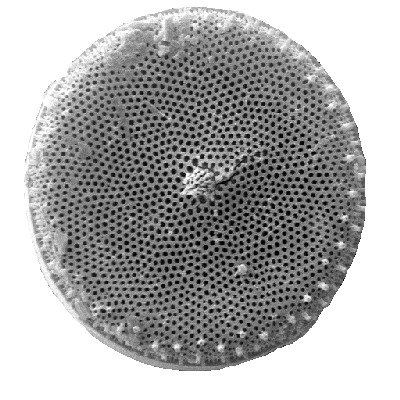The articles that we read opened my eyes on how plankton really effects our ocean. Plankton are small organisms that help many living things in the oceans. Plankton are one of the main souses of the ocean. Without them the food chain will start to die out. Each organism in the ocean depends on plankton one way or another. The majority of animals eat the plankton or eat the other animals that eat the plankton, so without plankton animals will die out. The articles state that the number of plankton is dropping. The ocean temperatures have started to rise, causing these organisms to die out. We wouldn't think that such a small thing in the ocean could effect the whole food chain but that's exactly what is happening. Plankton gobble up carbon dioxide that produce half the worlds oxygen, that will effect the whole world. The plankton population has dropped 40% since since 1950. That means that it has dropped about 1% of the average plankton population between 1899 and 2008, says the Scientific America article. Science has found that plankton declines are near the poles and in the tropics, but also just anywhere in the ocean. Scientist believe that the rising temperatures are causing the drastic decline of plankton. In Scientific America, it says that as the surface water begins to warm, it forms a layer that does not mix with the cooler waters below, those are the waters with nutrients in it, such as the materials needed for CO2 and sunlight.
I think that its clearly a big problem that the plankton population is decreasing. Without the plankton the oceans fish population will start to die out too. This will happen because all the organisms in the ocean in some way need plankton to live. Even if they are not directly eating the plankton they still eat other organisms that eat plankton. Plankton is an important part of our ocean. I think something has to be done in order to help keep the population up.
Friday, February 28, 2014
Friday, February 7, 2014
Food Web
- Subtitle “Marine Food Web”. Research the marine organism that you played in the food web activity: what eats it and who it eats. Fit the organism into a balanced marine ecosystem. What are the trophic relationships in your design? What would happen to the food web if one species were to become endangered or extinct? Which species would be affected? Which ecosystem would be affected?
- Write the answers to the above questions as one paragraph.
- Describe the class activity and record your 1/28 exit ticket.
1a. The food wed in an important part to all organisms. In the ocean every organism in the ocean is very important to one another. One animal eats another animal who eats another animal. Without cretin animals the food chain would slowly start to die. They all need each other for food.
1b. The class activity that we did was a fun activity.I enjoyed it, it really showed how much the food chain is connected and how every organism big and small are important in there own way. The activity showed us that with out some animals other animals would not be able to eat, therefor they would not be able to survive.
- Subtitle “Phytoplankton”. The second activity you did was to learn about the neuston ecosystem and look at diatoms under the microscope.
- Explain why phytoplankton is so important to marine food webs. Identify the organisms that are in the neuston ecosystem, and how much of Earth’s surface this ecosystem covers.
- Write up your diatom lab results in a single paragraph. This includes
i.Hypotheses from page 3.
ii.Activity 1 results on page 5.
iii.Conclude and communicate on page 5.
1a. Plankton is important becuase they provide food for almost all the organisms that are living in the ocean. Plankton also take up about 71% of the oceans there are so many of them.
1b. Diatoms are very small organisms, they can only be seen under a microscope

- Subtitle “Energy Flow”. Describe what happens to the amount of energy/biomass that is transferred from one trophic level to the next.
About 10% of net energy is produced through the trophic levels. It reduces the energy transferred between the different trophic levels such as respiration, growth and reproduction. Death of organism also affect the impact on the energy flow. When animals die off other animals get impacted by them because they need each other to live.
2.Subtitle “Human Impacts”. Answer and discuss the following: What roles do humans play in marine food webs? How can human actions upset the balance of an ocean ecosystem?
Human impact effects the ocean in many ways. When we fish of dump things into the ocean it is killing the organisms in it, not all but some. When we do things to destroy the ocean on purpose or not not matter what it will effect the ocean. When we impact the ocean we are impacting everything that's in it, the organisms that are in it suffer when we do things to put them in harms way.
Subscribe to:
Posts (Atom)